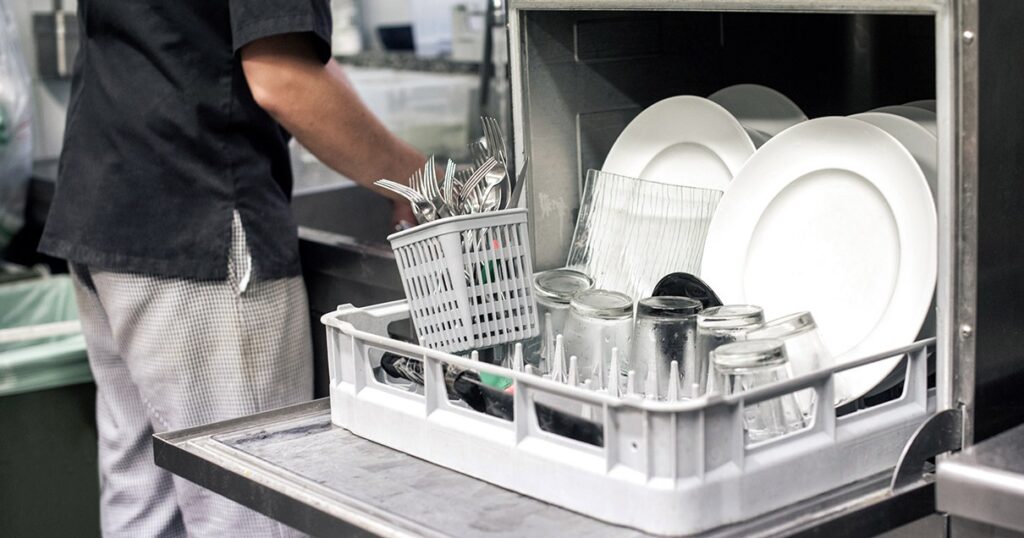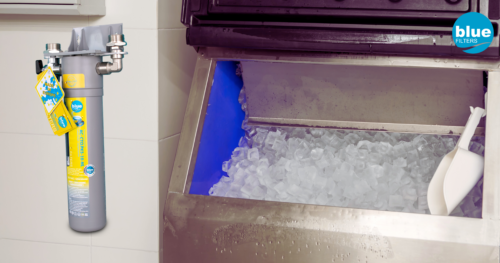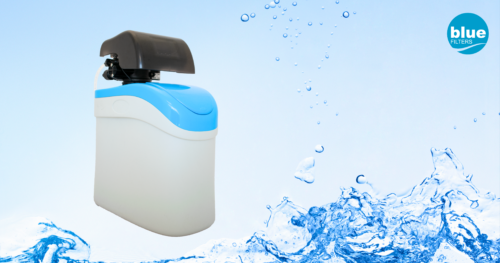Why should you use water softener for commercial dishwashers?
If you are still wondering whether to use a water softener for your dishwasher or not, let us make it clear right away – yes, you should. Keep reading for answers to all whys and what on water softeners for commercial use in HoReCa.
Why should you soften water for commercial dishwashers?
Hard water can make it hard to run your business smoothly, as it causes unexpected equipment downtime and unwilling expenditures on machine inspections. How is this possible?
You can’t spot hard water with your naked eye, but you can easily see the effect it has on dishwashers and dishes themselves – the limescale. Limescale forms a stone-like deposit or a chalky residue on basically every surface the water has contact with.
In the dishwashers, hard water builds up limescale inside the pipes, the wash pump and on the heating elements. If the scale deposit continues to build up, the dishwasher will either need a repair, or a replacement.
Also glasses, crockery and cutlery ‘suffer’ from hard water. The hard, poor-quality water makes the table and the kitchenware cloudy and gritty. This chalky film can be difficult to remove and another round in the dishwasher or adding more detergent won’t do the trick.
Limescale build-up, bad wash results, high detergent use and costly dishwasher repair bills – all this will be gone as soon as you install a water softener.

What is a commercial dishwasher water softener?
The water softener does a great job in terms of improving water quality. Depending on softening technology, water softener eliminates scale-forming minerals or neutralise them. This kind of treatment makes the water dishwasher-friendly, helps maintain your machine’s performance and prolongs its lifespan. Also, the tableware stays clean and shiny and cloudy glasses are gone for good.
A water softener can help commercial dishwashers operate in a failure-free manner. But how does it work exactly?
A water softener should be installed right at the water point of entry to the premises, or at the point where the dishwasher is used. Before the water reaches the dish machine, it flows through the water softening resin bed stored inside the water softener. The treated water flows out of the softener and enters the dishwasher.
When hard water flows through the resin bed, the calcium ions are replaced with sodium ions. This way the water becomes soft and free from scale-forming agents. Also, the water hardness level drops.
Which dishwasher water softener to choose?
To choose a suitable dishwasher water softener for your business, we recommend checking the water quality at your premises, the quantity of water used per week and the number of dish machines. This will allow you to assess the size of the water softener, minimise salt use and regeneration cycles, and maximise soft water capacity.
For busy places, such as big restaurants, trendy coffee shops and popular bistros we recommend EOS M and SATURN M water softeners, with high water output suitable for larger commercial dishwashers.
When your business needs constant access to soft water, NEMO water softener with a dual resin tank will be the best choice. NEMO delivers soft water nonstop, even during the resin regeneration process.
If you are looking for a high-capacity but compact size water softener, both GASTRO S/4 L and GASTRO S/5,5 L will meet those needs.
All the Bluefilters water softeners operate automatically and represent a good cost-to-value ratio. Additionally, the installation is easy and does not require special plumbing knowledge.
Bluefilters water softeners are also easy to maintain. A regular salt top-up and scheduled engineer inspections will keep the machine in a good condition, and your tableware and kitchenware sparkly clean.


